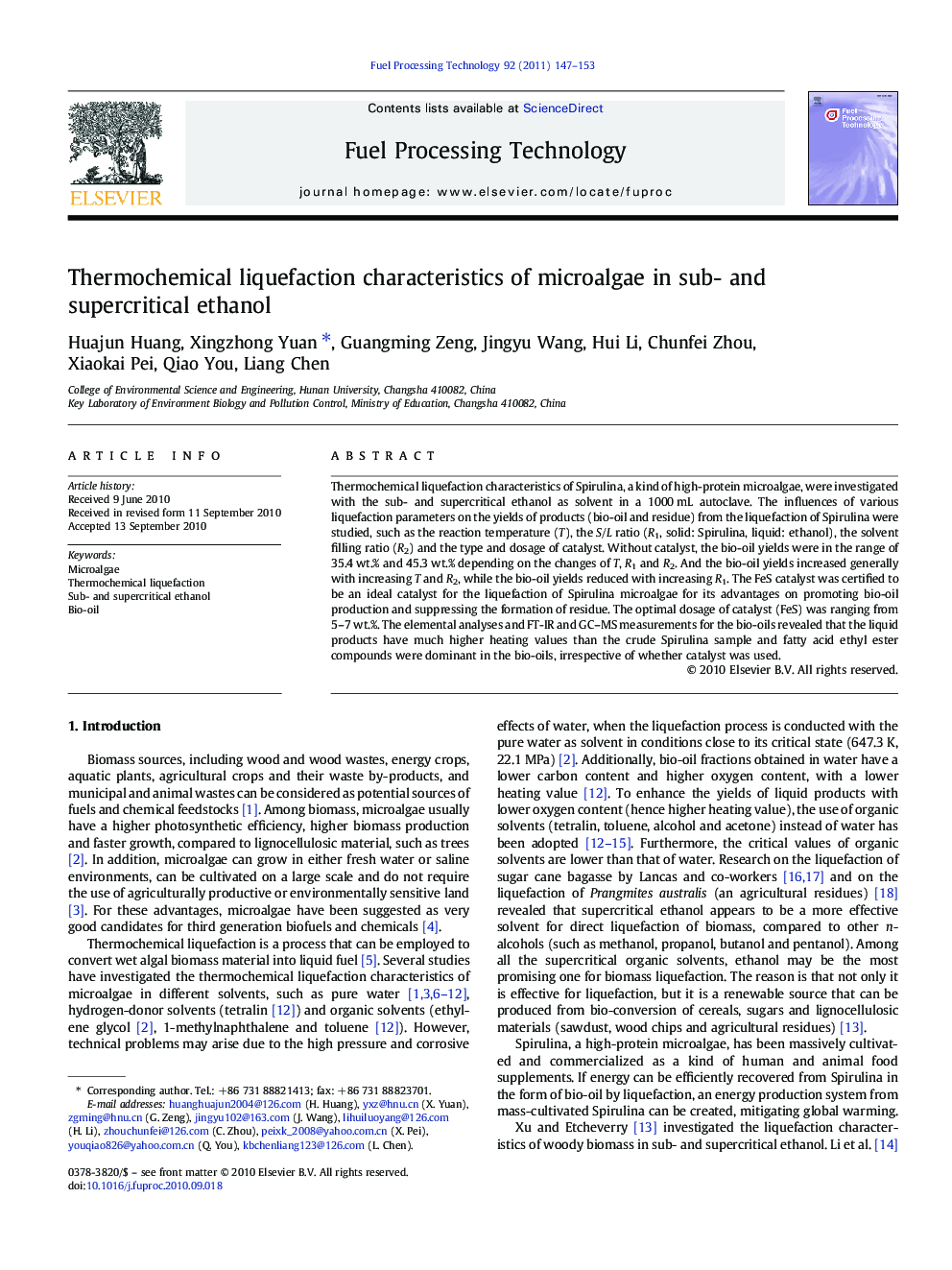| Article ID | Journal | Published Year | Pages | File Type |
|---|---|---|---|---|
| 210862 | Fuel Processing Technology | 2011 | 7 Pages |
Thermochemical liquefaction characteristics of Spirulina, a kind of high-protein microalgae, were investigated with the sub- and supercritical ethanol as solvent in a 1000 mL autoclave. The influences of various liquefaction parameters on the yields of products (bio-oil and residue) from the liquefaction of Spirulina were studied, such as the reaction temperature (T), the S/L ratio (R1, solid: Spirulina, liquid: ethanol), the solvent filling ratio (R2) and the type and dosage of catalyst. Without catalyst, the bio-oil yields were in the range of 35.4 wt.% and 45.3 wt.% depending on the changes of T, R1 and R2. And the bio-oil yields increased generally with increasing T and R2, while the bio-oil yields reduced with increasing R1. The FeS catalyst was certified to be an ideal catalyst for the liquefaction of Spirulina microalgae for its advantages on promoting bio-oil production and suppressing the formation of residue. The optimal dosage of catalyst (FeS) was ranging from 5–7 wt.%. The elemental analyses and FT-IR and GC–MS measurements for the bio-oils revealed that the liquid products have much higher heating values than the crude Spirulina sample and fatty acid ethyl ester compounds were dominant in the bio-oils, irrespective of whether catalyst was used.
